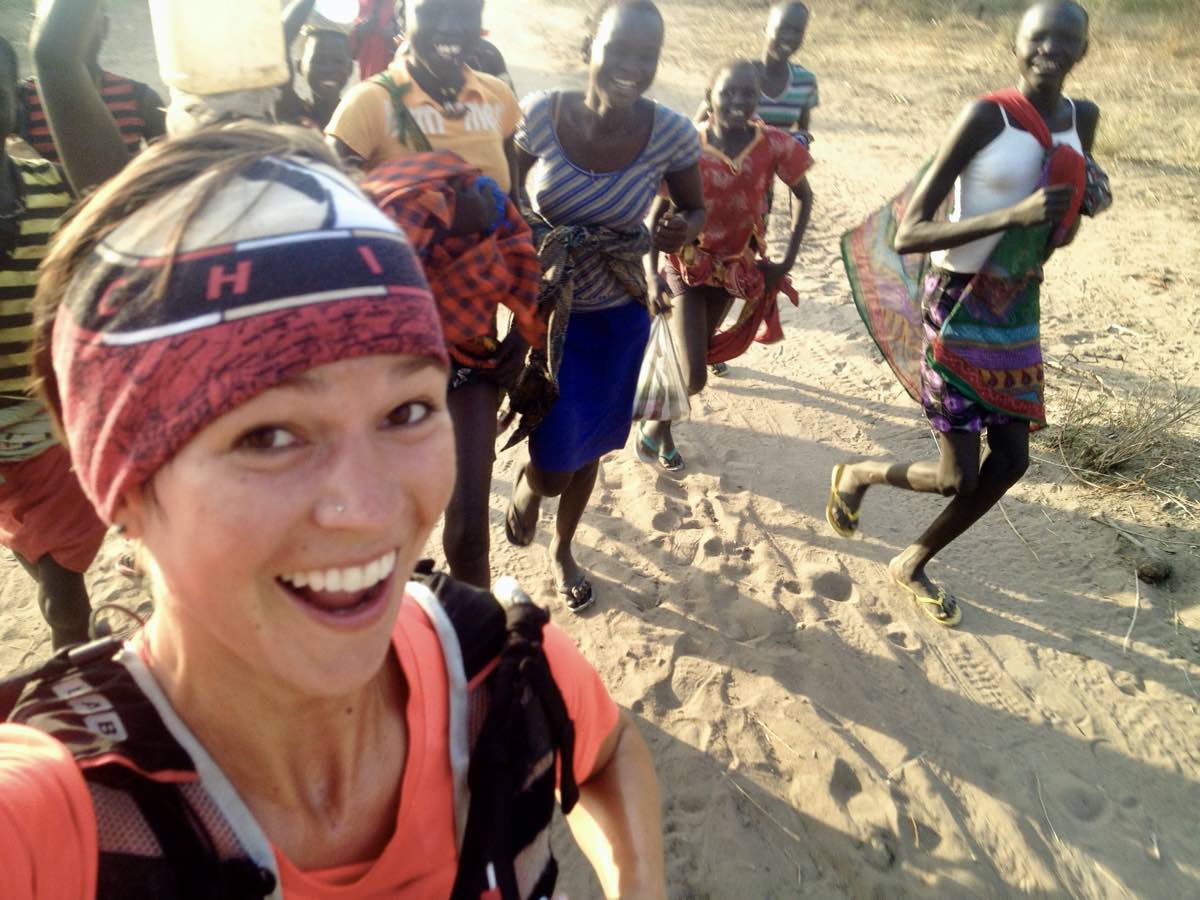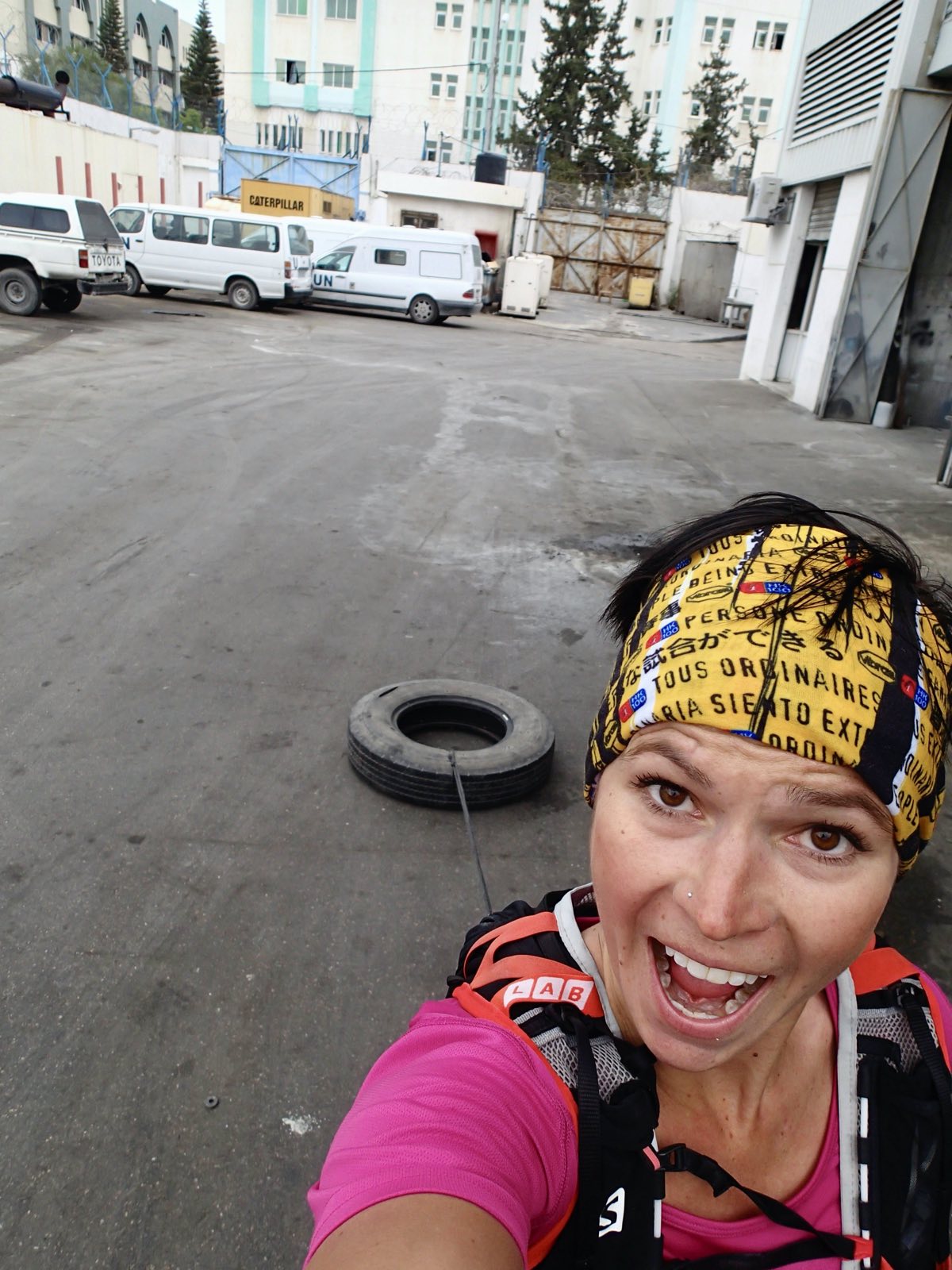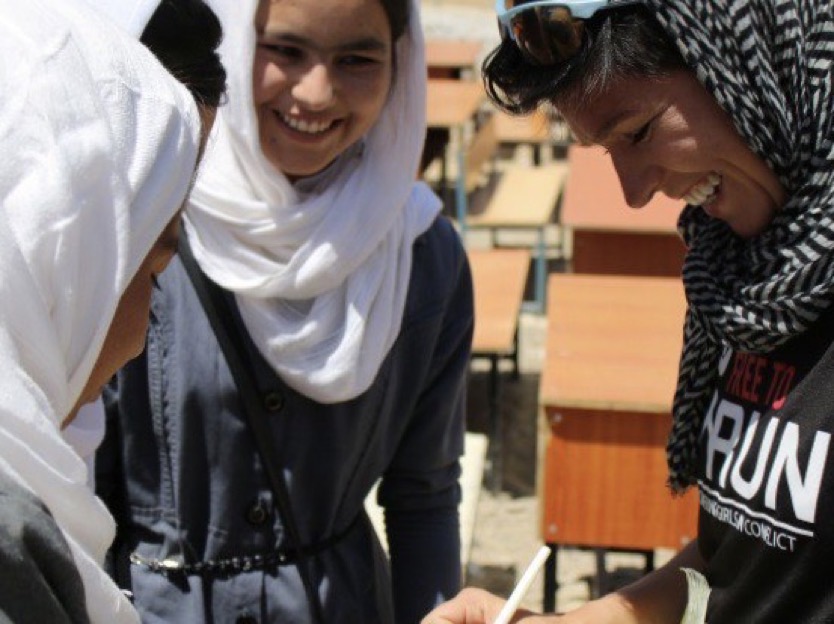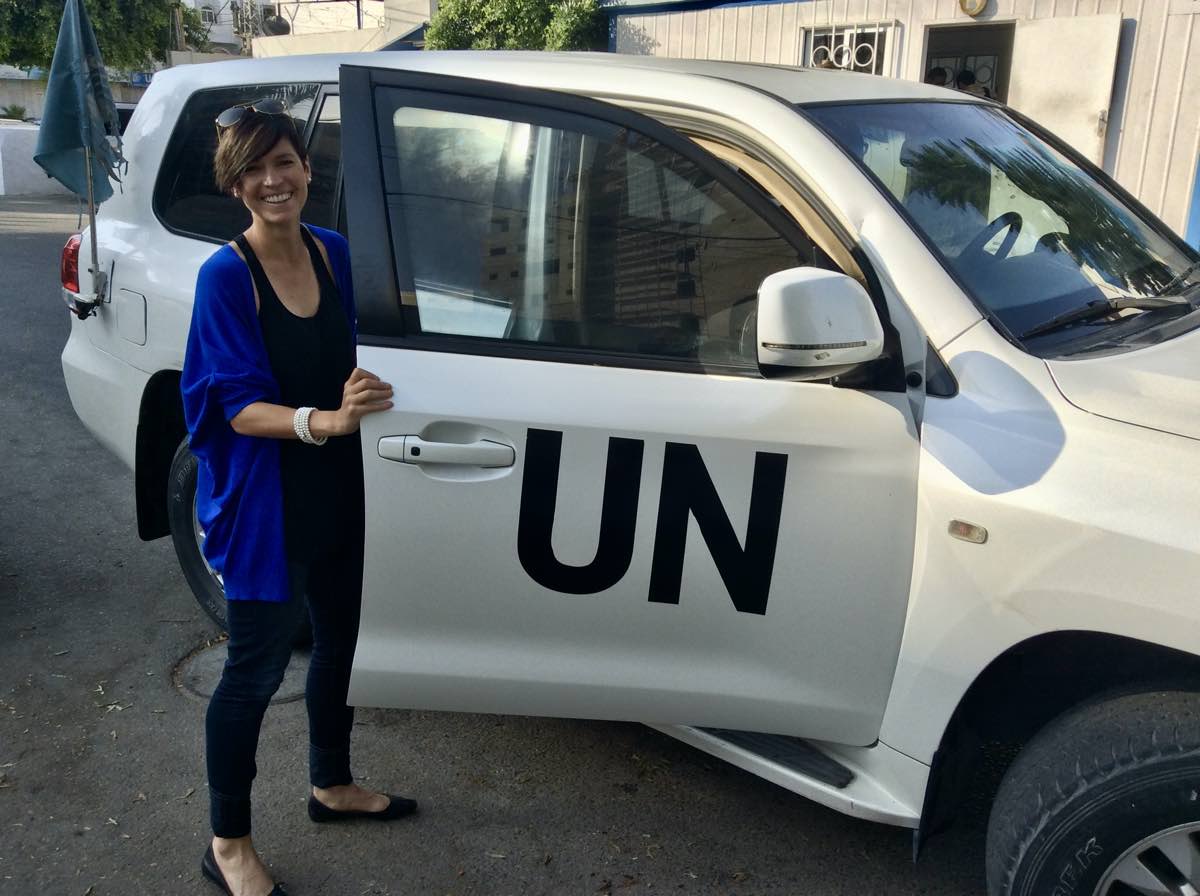I’ve been at this “Catching Up With” column for a few months, but I was nervous to call Stephanie Case. She works for the United Nations (UN) and I feared ignorance on worldly matters, among other things. Case’s smile quickly reassured me though, beaming across a computer screen from Chamonix, France. She spoke with just a hint of a Canadian accent, and with a nose stud glistening.
Chamonix is certainly different than many of Case’s work locations, and she steps me through her unique career track. “It was a progressive path into war zones, quite difficult surprisingly,” she said of the trajectory, and then followed with the motivation. “I don’t know where it came from, I just had this feeling [growing up] that the conditions of the vast majority of the world are different than the window I saw.” She traces her earliest experience to a year of high school in Switzerland, and then a first trip to Africa as a college sophomore in 2002. She politely picks at the ethics of voluntourism and calls the practice an “exchange of cultures,” but she was increasingly hooked, and international travel became increasingly frequent. Case taught the English language to Buddhist monks in Thailand the next year, and laughs at the recollection of a gastrointestinal problem she contracted while there. “I sat on a pillow the whole next year. I had to take my exams standing up,” she laughs. I shake my head, wondering why I was nervous in the first place. Despite her position, Case is definitely down to earth.
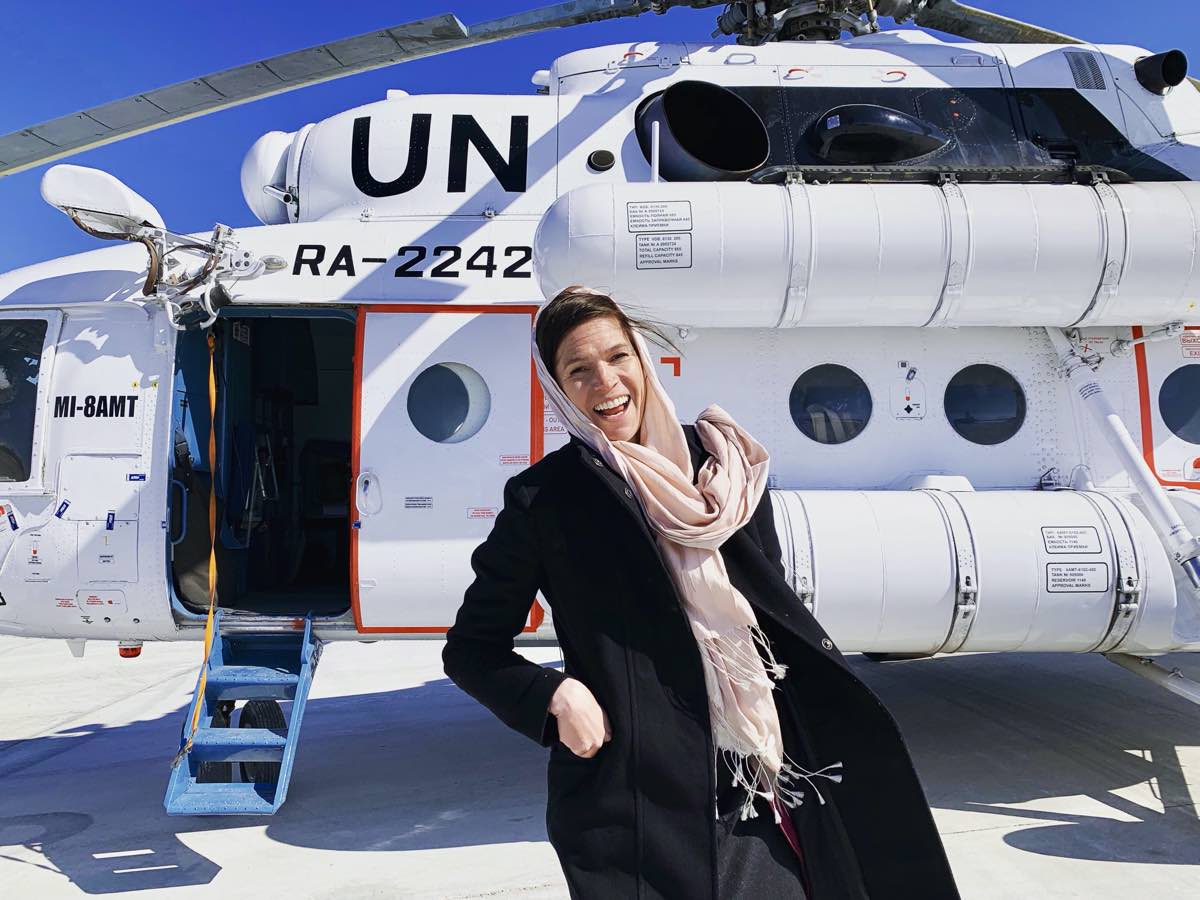
Stephanie Case working in Afghanistan. All photos courtesy of Stephanie Case unless otherwise noted.
“The easiest job I’ve gotten was the one straight out of university,” Case explained, “and it was the highest paid too.” Work at a major corporate law firm in New York followed law school. “I ultimately really wanted to work for the UN, but it’s hard to break into. These large law firms have relationships all over the world though and there’s some opportunity to do pro-bono work on the side.” Case latched onto Lawyers Without Borders, for one. “I self funded a lot of trips, I needed to build up my curriculum vitae. Liberia, Ethiopia, Rwanda,” she rattles off a few of her destinations from that period. “Trial monitoring, for human-rights activists on trial, training lawyers and judges on the rule of law,” she said of the work. “I broke my jaw in Rwanda too, a bike accident.” I shake my head again.
The 2008 Lehman Brothers collapse gave her an opportunity for a permanent exit from high-stakes corporate law, and she went deep into unpaid human-rights work, including at the International Bar Association for Human Rights Institute, in London. And there were more international trips, “Syria, Kenya, trying to build street cred on human rights.”
“I went to Afghanistan with the UN in 2012 as a volunteer. I scoured LinkedIn for recruiters,” she said of her ultimate ticket in. “2014 was South Sudan. I lived in a tent for six months as a non-government organization employee with internally displaced people. I was part of the humanitarian response. There were 100,000 people camped together. It was pretty intense, but I really wanted a hardcore humanitarian experience. With compound life [as in Afghanistan], you’re at risk, but you still have some comforts. South Sudan was not that,” she said, emphasizing ‘not.’
Case’s travel is certainly intense too, and I lose track of timing on a trip to Kyrgyzstan in this period, or was it Sierra Leone? Both. She ultimately landed her “first real job with the UN” in Gaza. The Palestinian territory has a complicated and violent history, and Case cycled two years in the war zone with two years in Geneva, Switzerland before going back to Afghanistan, for just over two years. I’m not sure what work in human rights really is, and challenge Case to nail it down. She laughs, but graciously answers. “It always changes depending on where I am. I’ve worked with teams on child and civilian protection, children in armed conflict, monitoring and documenting incidents of civilian casualty, like school and hospital attacks. We advocate with fighters about the way they are fighting war. I’m kind of a military expert on tactics and weapons, at least the terminology, because of that.”
She goes one step deeper in describing a particular success. “I won’t say who the perpetrator was, but in documenting civilian casualties from an air strike, the respective party denied it happened. One guy lost dozens of members of his family, but the party denied it happened. You see the rubble and the dead bodies, it’s pretty upsetting, and you can’t stop working until you get an acknowledgement. I flew out to the province and really pushed that particular party, working with them, conducting an investigation, and eventually they gave compensation. It doesn’t correct it, but is some acknowledgement that those family members lived. And accountability is important or they’ll keep doing it over and over.”
In 2014, while in Afghanistan, Case launched her own non-profit, Free to Run. “While in Afghanistan, I used running to raise money for a women’s shelter, and was getting to know the women at the shelter. Running was more valuable to them than money and I thought there must be a better way I could support them. During the year there no one wanted to do it, it was too risky and no one saw the importance or impact it could have. I talked to a few friends and they gave me seed money and now we’re in five provinces in Afghanistan. We’re in one province where no one else is doing this stuff,” she says proudly. The non-profit operates in Iraq too.
“It’s not focused on athletic excellence at all, but we look at what sports can do to drive social change. There are three pillars: physical activity, life skills through sports, and a volunteering component. We try to help reclaim public space. In these areas that are really affected by conflict, women are invisible. But through our activities, we try to change women’s roles. This year we reached 800 women through all of our activities,” Case’s voice rings with passion. “We take the curriculum into schools to spread the impact.”
After over two years in Afghanistan, for the second time, Case just transitioned into a UN role in New York, but is working remotely from Chamonix at present. It’s the same place where she suffered a serious glacier fall on New Year’s Day in 2017, and is still something of a home and retreat away from the seriousness of other work locations. She’s working as a human-rights analyst at the UN’s Crisis Center, monitoring conflicts and situations all over the world and looking to see how they can use human rights better. “We can flag situations earlier, prevent things,” Case said.
“It’s pretty traumatic, heavy work. If a person’s killed or kidnapped, you can’t get away from it,” but for Case, part of her escape is ultrarunning, and she’s finished long adventures like Tor des Géants and the Andorra Ultra Trail, in addition to mainstays like the Western States 100 and Transvulcania Ultramarathon. “In many ways, I wish I didn’t want to do this kind of work. I am happy though that I have a clear idea about what I want to do. If I didn’t do this, I might be a millionaire, married, have kids. I’m separated from friends and family. I can’t expect other people to understand this way of life without having the experiences. It’s not dramatic to say this is a calling, but I know everyone has a place, whether that’s being a great dad or working at a store. If I didn’t do this work I’d be leaving a hole.”
Stephanie Case talked a few times about gaining street cred on her path to reach this point, and dang, she’s got it in my book. And the trail cred’s there too.
Call for Comments
Leave your own Stephanie Case stories in the comments section!
